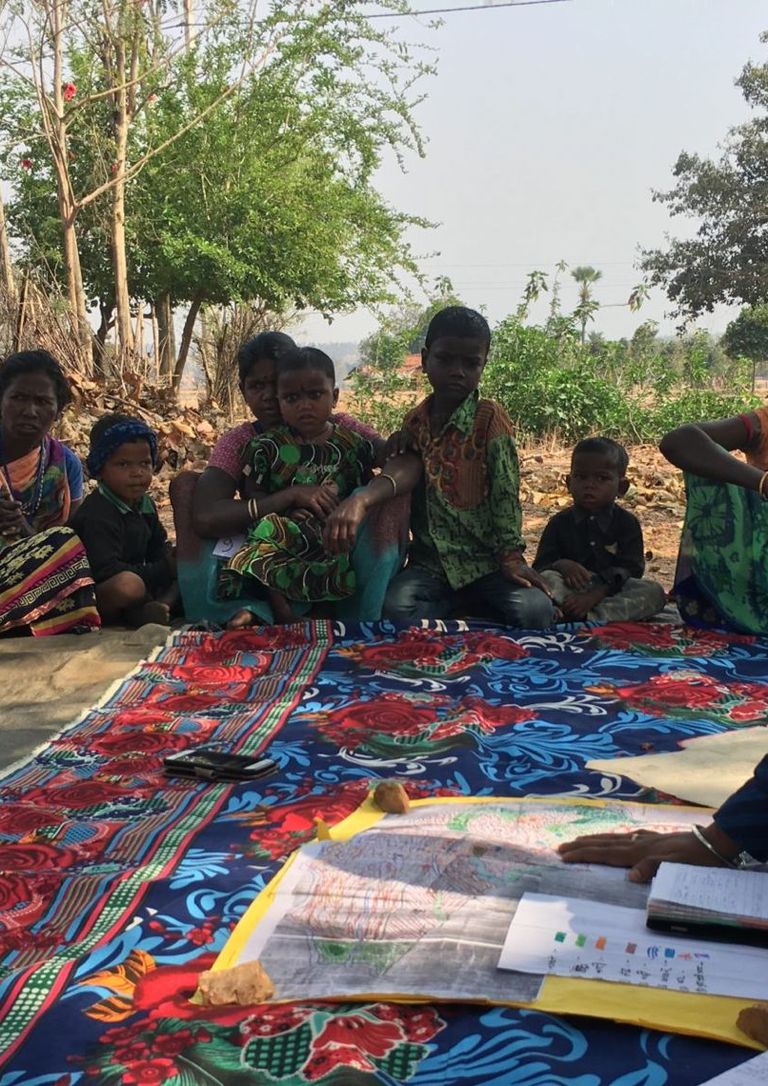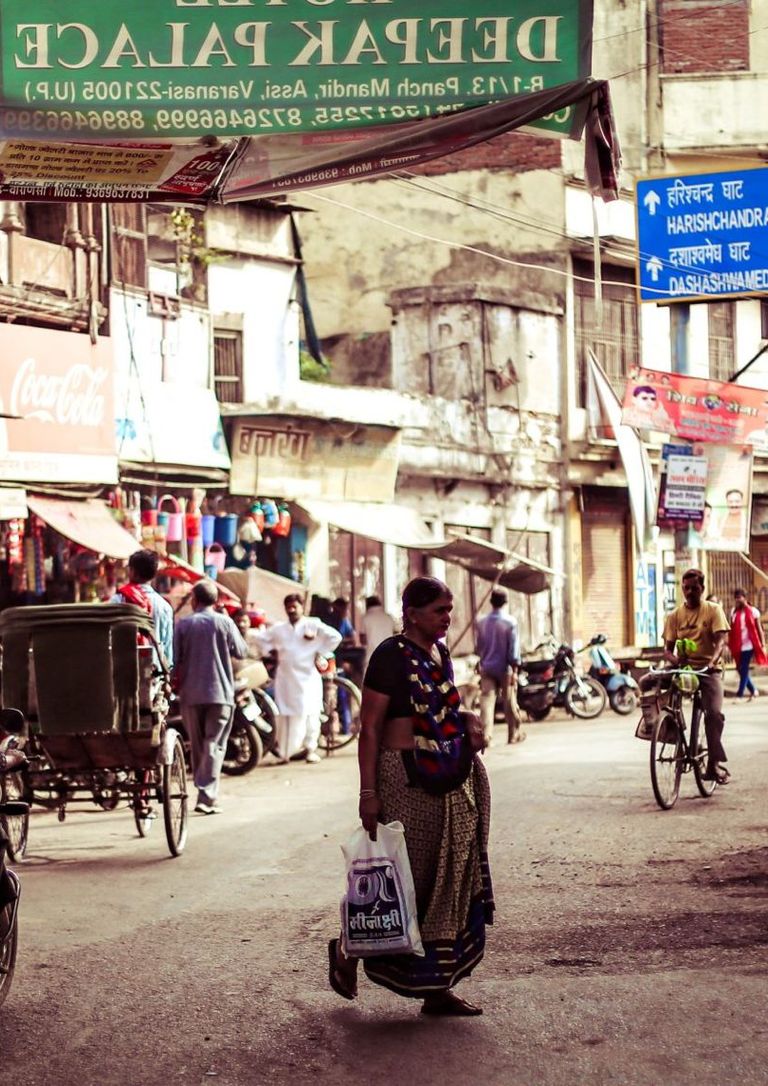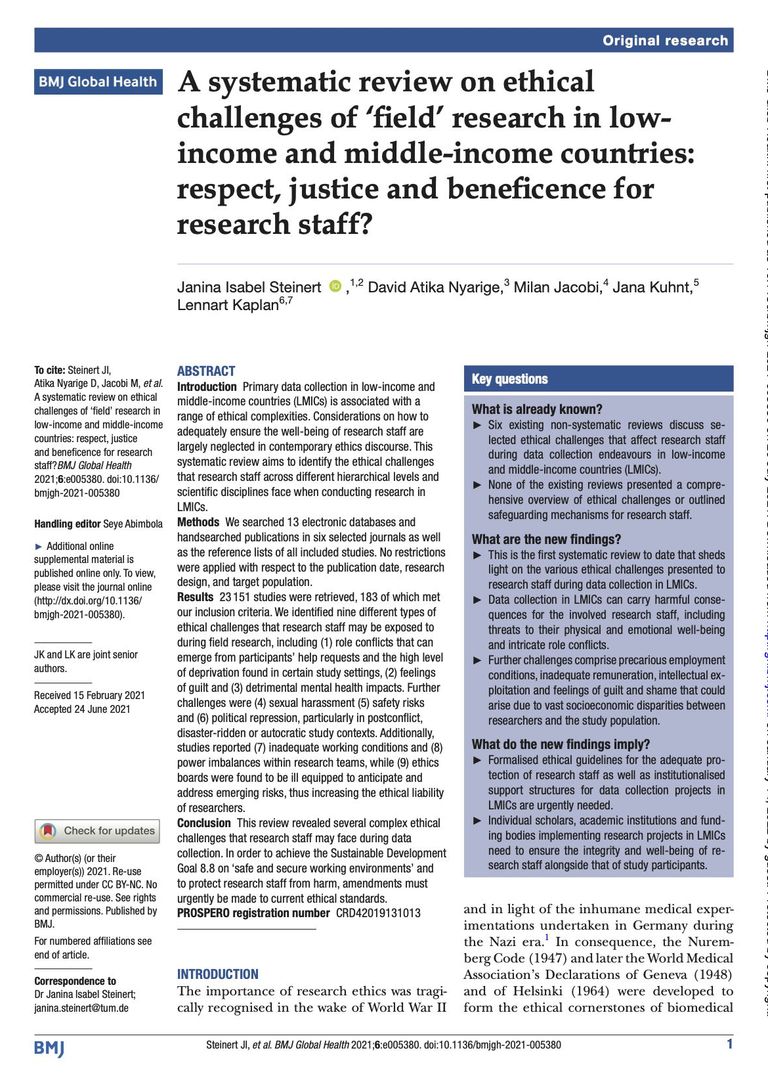Do no harm? Field research in the Global South: Ethical challenges faced by research staff
The rise of randomized controlled trials (RCTs) to rigorously evaluate development policy is characterized by a wide range of ethical complexities. While the literature has identified ethical challenges pertaining to study participants, we argue that the principle of “do no harm” should equally apply to research staff. Based on an ongoing systematic review and interviews with research staff at different hierarchical levels and world regions, we identify key ethical challenges of field research in the Global South, including threats to physical and emotional wellbeing. Moreover, prevailing power imbalances can create precarious working conditions and inadequate acknowledgement of contributions. An open discussion and learning from “best practices” is needed to address these gaps in development research.

read the full comment
Source: Lennart Kaplan, Jana Kuhnt, Janina I. Steinert, Do no harm? Field research in the Global South: Ethical challenges faced by research staff, World Development, Volume 127, 2020, 104810, ISSN 0305-750X, https://doi.org/10.1016/j.worlddev.2019.104810.





